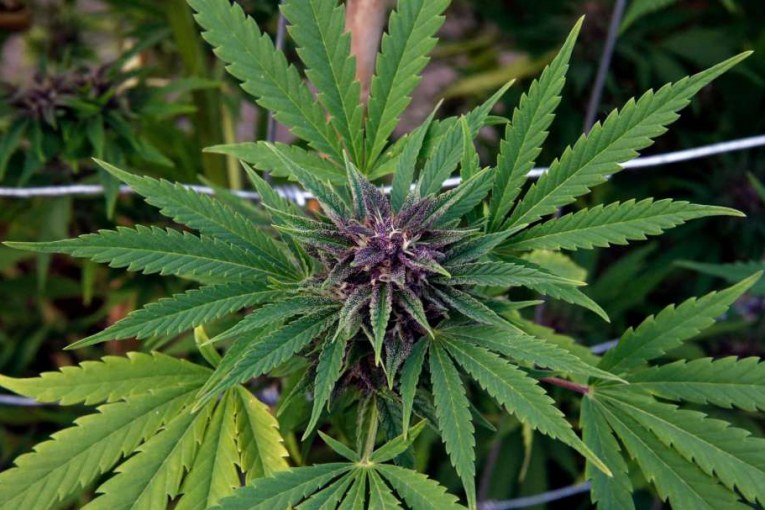

At the March 23, 2017, meeting, the Davis City Council directed city staff to bring forth an ordinance that would establish zoning of Commercial Cannabis Manufacturing, Testing, Research and Development, and Distribution.
In late May, the council will be asked to pass an extension of the Interim Urgency Ordinance that would allow the proposed ordinance to go into full effect but provide the city with additional time in order to consider further land use zoning for cannabis businesses, as they relate to commercial cultivation and dispensaries.
The item will be heard tonight at the Planning Commission. According to city staff, the proposed ordinance would have “regulatory authority over cannabis uses consistent with State law” by adding “commercial cannabis manufacturing, testing, research, and distribution uses as permitted or conditionally permitted uses in zoning districts already established for such purposes.”
Such uses would be permitted in industrial zones and planned development districts but not in residential areas. There would be a mandatory 600-foot buffer between these businesses and uses such as schools, day care, or places where children congregate.
Staff believes, based on proposed uses, “the buffer is not necessary as existing zoning appropriately establishes a separation of uses to avoid potential conflicts with incompatible uses related to manufacturing, testing, research businesses, and distribution uses.
“The 600-foot buffer may be appropriate for dispensaries, which will be addressed in future ordinances; however, cannabis related manufacturing, testing, research, and distribution uses do not include retail sales to the public, and are limited to wholesale uses, and storage and distribution.”
Staff argues that, because these uses occur in enclosed buildings where the public will not be purchasing products or congregating, there is no need for such a buffer.
“The ordinance does not authorize any other cannabis businesses except those expressly permitted,” staff writes. “Individual CEQA analysis for commercial cannabis manufacturing, testing, research and development and distribution businesses will be determined on an individual project basis pursuant to the standard planning review process applicable to conditional uses.”
The proposed ordinance permits three specific activities. Cannabis manufacturing refers to the “compounding, blending, extracting, infusing, or otherwise making or preparing a cannabis product” and “expressly includes the production, preparation, propagation, processing or compounding of cannabis or cannabis products directly or indirectly, including through extraction and/or chemical synthesis methods.”
“Cannabis manufacturing may include distribution of wholesale products from the premises, but shall not include any retail sales of cannabis or cannabis products or other sales to consumers,” according to city staff.
Cannabis laboratories and research refers to “a laboratory, facility, or entity that offers or performs tests or testing of cannabis or cannabis products.” This can includes things like “start-up or incubator research activities, which typically include but are not limited to research, design, analysis, development and/or testing of a cannabis product, and laboratories or facilities engaged in scientific research studies, investigation, testing or experimentation, but not including cannabis manufacturing or sales of cannabis.”
Finally, cannabis distribution facility refers to “any facility engaged in the procurement, temporary storage, non-retail sales, and transport of cannabis or cannabis products between State-licensed cannabis businesses, including warehouses and similar structures.”
Commercial cannabis manufacturing could include the use of either non-volatile and volatile substances, and this would depend upon the product and manufacturing process. Under existing zoning code, “a Conditional Use Permit is required for any business that handles hazardous materials in aggregate of more than five hundred pounds, fifty-five gallons, or hundred cubic feet in gaseous state at standard temperature and pressure a year. Any use involving volatile or hazardous substances that exceed this threshold would be subject to stringent safety standards and conformance to applicable provisions of Article 40.24.”
One source believes that these regulations will put Davis on the map, as no one locale is going this far on the research side of the coin.
The item, as indicated, is scheduled to be heard tonight at the Davis City Planning Commission and then would go to council on May 23, for consideration of adopting the ordinance as well as extending the Urgency Ordinance through October 31.
—David M. Greenwald reporting


Let’s see if Davis can be the pot capitol of the world. Now there’s something our local nimby liberals might strive for. They don’t want business parks but that may be because the parks were in the wrong business. Just think of it, a resident might someday be proudly able to say, “I live in the pot capitol of the world.”
We could have a statue of Willie Nelson in the park and re-purpose the bicycle hall of fame.
LOL, now that’s a statue dedication with a Mayor Davis speech I might actually attend.
https://img1.etsystatic.com/134/0/7206258/il_570xN.899433427_csbh.jpg
Not a bad idea and I’m sure it will get more visitors.
http://hashmuseum.com/sites/default/files/styles/location_teaser/public/Hash%20museum.jpg?itok=bbIKquqC
There is a guy I know in Davis with a strong background in both bicycles and pot. Maybe he could form a steering committee.
Unlike the semi-conductor materials growth lab which has run into considerable citizen opposition for wanting a Conditional Use Permit to exceed the hazardous materials guidelines I’m sure these pot labs will run into no such problems.
I think you’re underestimating the community pushback even against cannabis.
It doesn’t sound like our council thinks there will be much community pushback either.
Remember that pushback comes when there is a specific proposal on the table, not a general policy.
The pushback on the semi-conductor materials growth lab has nothing to do with safety. That is just the excuse that is given.
I agree.
They could call it the Potcycle Museum but it might get confused with popsicles.
https://pbs.twimg.com/profile_images/97272313/purpletwitterlogo_400x400.jpg
On second thought maybe Cannabikes would be a better name.
https://www.marijuana.com/wp-content/uploads/2015/01/weed-bike.jpg